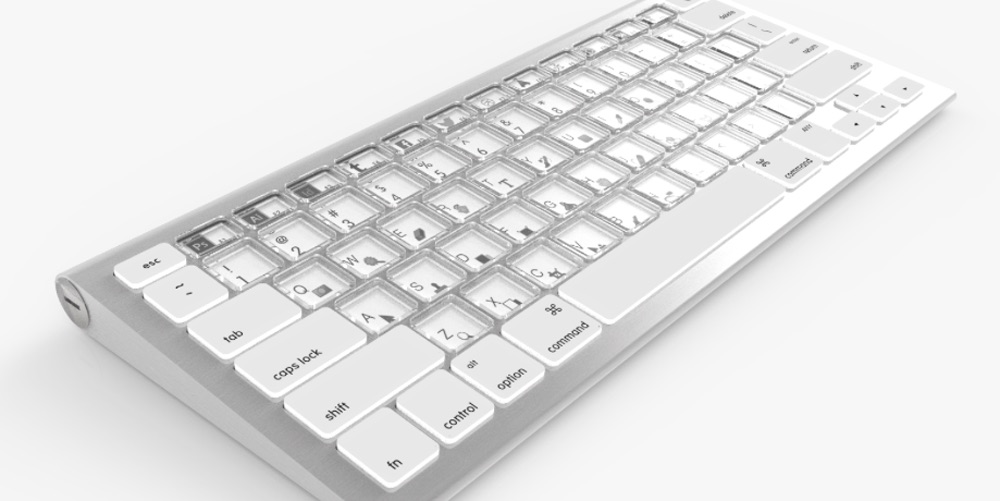
Whereas the MacBook Professional‘s now-vintage Contact Bar could have been a misstep, it nonetheless appears possible that Apple’s long-term imaginative and prescient is to switch bodily keyboards with touchscreen ones – and Carnegie Mellon College’s flat panel haptics may very well be a greater guess than the approaches Apple has patented thus far.
Apple’s first step on this prolonged journey was in fact the iPhone, changing the bodily keyboards which have been the norm on smartphones of the time with a screen-based digital one …
That was adopted by the iPad, which provided one thing near a normal-sized keyboard in digital kind. However there are quite a few Apple patents to counsel that the corporate doesn’t plan to cease there.
The issue with screen-based keyboards
Dynamic keyboards – the place the perform of keys can change contextually, relying on the app you’re utilizing and what you’re doing on the time – are possible the subsequent main growth. They provide far larger flexibility than typical keyboards, enabling them to be personalized for something from typing in one other language to video modifying.
One type of dynamic keyboard retains bodily keys, however makes use of e-ink or OLED keycaps to permit the perform of the keys to be modified on demand.

One other is to switch a bodily keyboard with a screen-based one, as on the iPhone and iPad. The issue, in fact, is that the dearth of really feel and motion makes a display each awkward and uncomfortable to make use of for all however small volumes of textual content.
Apple’s work to resolve these issues
The shortage of motion is definitely solved with haptics. Apple specifically has demonstrated simply how convincing this really feel may be: Its trackpads haven’t provided bodily clicks for years, however you’d by no means guess that in the event you didn’t already know. The sensation is 100% convincing.
However feeling motion is barely half the battle with keyboards: You may’t touch-type except your fingers can really feel the keys earlier than you press them.
Apple has been engaged on this drawback for a few years, and a 2018 patent illustrates one potential answer – utilizing an electrostatic cost to simulate the sensation of the sting of a key.
However Carnegie Mellon’s flat panel haptics appears higher
However two researchers within the Future Interfaces Group (FIG) at Carnegie Mellon College have give you what looks like a greater strategy, within the type of what they name flat panel haptics. Gizmodo explains.
Researchers from Carnegie Mellon College’s Future Interfaces Group (FIG) are taking one other shot at fixing these points with a expertise they’re calling Flat Panel Haptics, as detailed in a brand new paper […]
The FIG researchers have succeeded in creating embedded electroosmotic pumps (EEOPs)—able to shifting liquids by making use of electrical fields as an alternative of utilizing shifting elements—that measure simply 1.5 millimeters thick.
They are often paired with an equally skinny liquid reservoir beneath them, and a versatile floor construction on high, to virtually instantaneously create pop-up buttons (the method takes a couple of second) measuring virtually 5 millimeters in peak with sufficient strain and rigidity to make them really feel strong when pressed.
Proper now, the buttons can be a set format – that means their perform can change, however their dimension and form can not. Nonetheless, the long-term objective is to implement this tech at a pixel degree, in order that keys may be any dimension and form.
In fact, there’ll at all times be keyboard purists who insist on nothing lower than full-travel mechanical keyboards, however Apple has already demonstrated that prospects will adapt to the texture of quite a lot of keyboard mechanics (if they are often made dependable!), so it doesn’t appear an excessive amount of of a stretch to think about this tech not too far down the highway.
What’s your view? Given the flexibility to regulate the keyboard to totally different apps, from video modifying instruments to international language keyboards, would adapting to a special keyboard really feel be worthwhile? Please share your ideas within the feedback.
